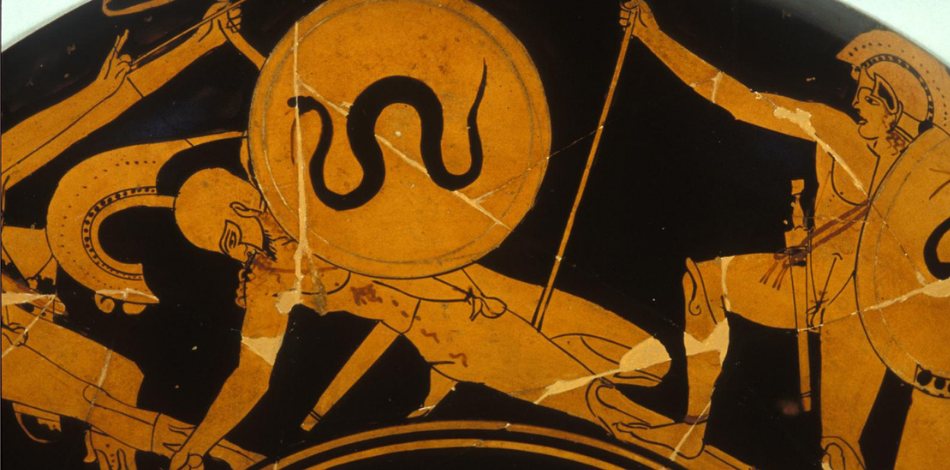Diversity in the Stacks: Veterans and Ancient Greek Literature

Diversity in the Stacks aims to build library collections that represent and reflect the University’s diverse population.
The works of Homer, the Odyssey and the Iliad, along with the ancient Greek tragedies of Aeschylus, Sophocles, and Euripides, continue to speak to modern audiences from a diversity of cultures and regions. Each generation that comes to these texts recognizes something of their own particular struggles and tragedies in the words of these ancient authors, whether personal, communal, or national. Because some translators have tried to preserve something foreign or archaic in these works, the poets’ fundamental messages of human suffering, pain, loss, and redemption, can sometimes get lost under the weight of words. But Homer, Aeschylus, Sophocles, and Euripides are continually made new through fresh translations and reinterpretations. In recent decades, veterans from the Viet Nam, Iraq, and Afghanistan wars have found that reading and sharing these ancient expressions of the destruction and tragedy of war have given them the means to openly express their own experiences with war and homecoming.
Scholars in the field of medicine and mental health have examined the healing possibilities of reading, exploring, and interpreting the ancient texts, and the importance of sharing and writing one’s own stories. Peter Meinecke observes that Odysseus himself recovers from his years of war and his difficult homecoming through storytelling. “Odysseus recuperates… through two chief means, tears and tales: tears that are prompted by emotionally reexperiencing [his] many woes… and tales that put them into a narrative to share with sympathetic listeners.”
With the importance of storytelling in mind, the Voices from War project, a not-for-profit literary arts program, offers workshops and events that create opportunities for veterans to express their experiences of war through writing. According to the organization, these programs “[build] community among veterans” and create “bridges of experience” between veterans and civilians.
In a similar spirit, the Penn Museum’s Eternal Soldier program brings together archaeologists, classicists, historians, clinicians, and veterans to explore ancient texts on war, warriors, and the experiences of combat. The program is directed by Kimberly “Max” Brown, and its advisory board is made up of veterans and Penn faculty, including C. Brian Rose, Sheila Murnaghan, and Julia Wilker from the Penn Classical Studies Department, and Andrew Stone from Penn’s Perelman School of Medicine.
Participating veterans read the ancient works and discuss them from the perspective of their own experience in combat, bringing a deeper and more complex understanding to the works for veterans and scholars alike. This past November 11, the Eternal Soldier held a virtual event, “The Eternal Warrior,” featuring veterans reading selections from Homer’s Odyssey, as well as other works, both ancient and modern.
The reading list below comes from the Eternal Soldier program and includes translations, re-interpretations, and explorations of the ancient Greek epics and tragedies, all of which are available through the Penn Libraries. New translations, such as Penn Professor of Classical Studies Emily Wilson’s translation of Homer’s Odyssey, free the work from a centuries old Eurocentric, larger-than-life approach to the translation, in which 19th and 20th century values around slavery, colonialism, gender, and exceptionalism have been layered onto a text from the 8th century BC. New voices bring new understandings, experiences, and perspectives to the ancient texts, as though continuing the process of an excavation.
Other works in this list reimagine the ancient stories in new times and spaces. These retellings bring the messages of the unbearable trauma of war, loss, and the lasting hope of return to contemporary readers. Denis Kiely and Lisa Swift write that many American literary and film protagonists in works from Red Badge of Courage to the Rambo films, “owe a debt to Homer, the first artist … to write about the psychological effects of war…” These protagonists are direct descendants of “Achilles, Odysseus, Hector, Ajax, Agamemnon, and the other heroes of the Trojan War.” These retellings help us understand the struggles of others—refugees of war and returning veterans. They can even bring us peace as we seek to understand our own personal struggles.
The Texts
Translations
- Aeschylus (Peter Meineck, trans.) Oresteia (Agamemnon, The Libation Bearers, The Furies), 1998
- Euripides (Diane Arnson Svarlien, trans.) Andromache, Hecuba, The Trojan Women, 2012
- Euripides (Sheila Murnaghan, trans.) Medea: A New Translation, Contexts, Criticism, 2018
- Homer (Emily Wilson, trans.) The Odyssey, 2018
- Homer (Joe Sachs, trans.) The Iliad, 2018
- Sophocles (David R. Slavit, trans.) The Other Four Plays of Sophocles: Ajax, Electra, Philoctetes, Women of Trachis, 2013
- Sophocles (Oliver Taplin, trans.) Antigone, Electra, Women of Trachis, 2020
- Sophocles (Diane J. Rayor, trans.) Antigone: A New Translation, 2011
Find other editions and translations of the Iliad and the Odyssey at the Penn Libraries, including spoken word options.
Rewritings and Explorations
- Bryan Doerries. The Odyssey of Sergeant Jack Brennan, 2016
- Bryan Doerries. The Theater of War : What Ancient Greek Tragedies Can Teach Us Today, 2015
- Bryan Doerries, Sophocles, and Aeschylus. All That You've Seen Here Is God : New Versions of Four Greek Tragedies : Ajax, Philoctetes, and Women of Trachis by Sophocles & Prometheus Bound by Aeschylus, 2015
- Hunter Gardner and Sheila Murnaghan. Odyssean Identities in Modern Cultures: The Journey Home, 2014
- Peter Meineck and David Konstan. Combat Trauma and the Ancient Greeks, 2014
- Eugene O’Neill. Recorded performance of Mourning Becomes Electra, Broadway Theater Archive, 1978
- Eugene O’Neill. The Mourning Becomes Electra trilogy, 1931
- Alice Oswald. Memorial: An Excavation of the Iliad, 2011
- Erich Maria Remarque. All Quiet on the Western Front, 1930
- Jonathan Shay. Achilles In Vietnam: Combat Trauma and the Undoing of Character, 1994
- Jonathan Shay. Odysseus In America: Combat Trauma and the Trials of Homecoming, 2002
- Isabelle Torrence, editor. Aeschylus and War: Comparative Perspectives on Seven against Thebes, 2017
Date
February 17, 2021
